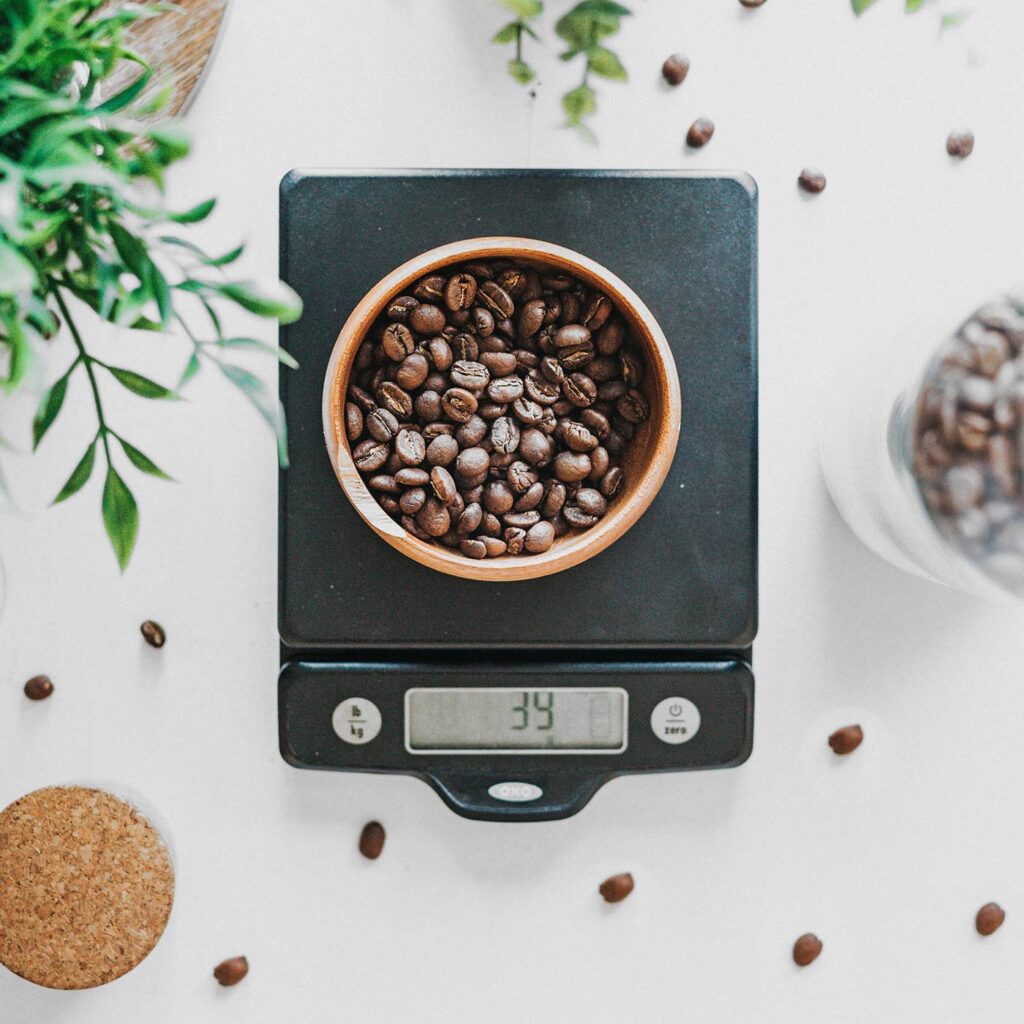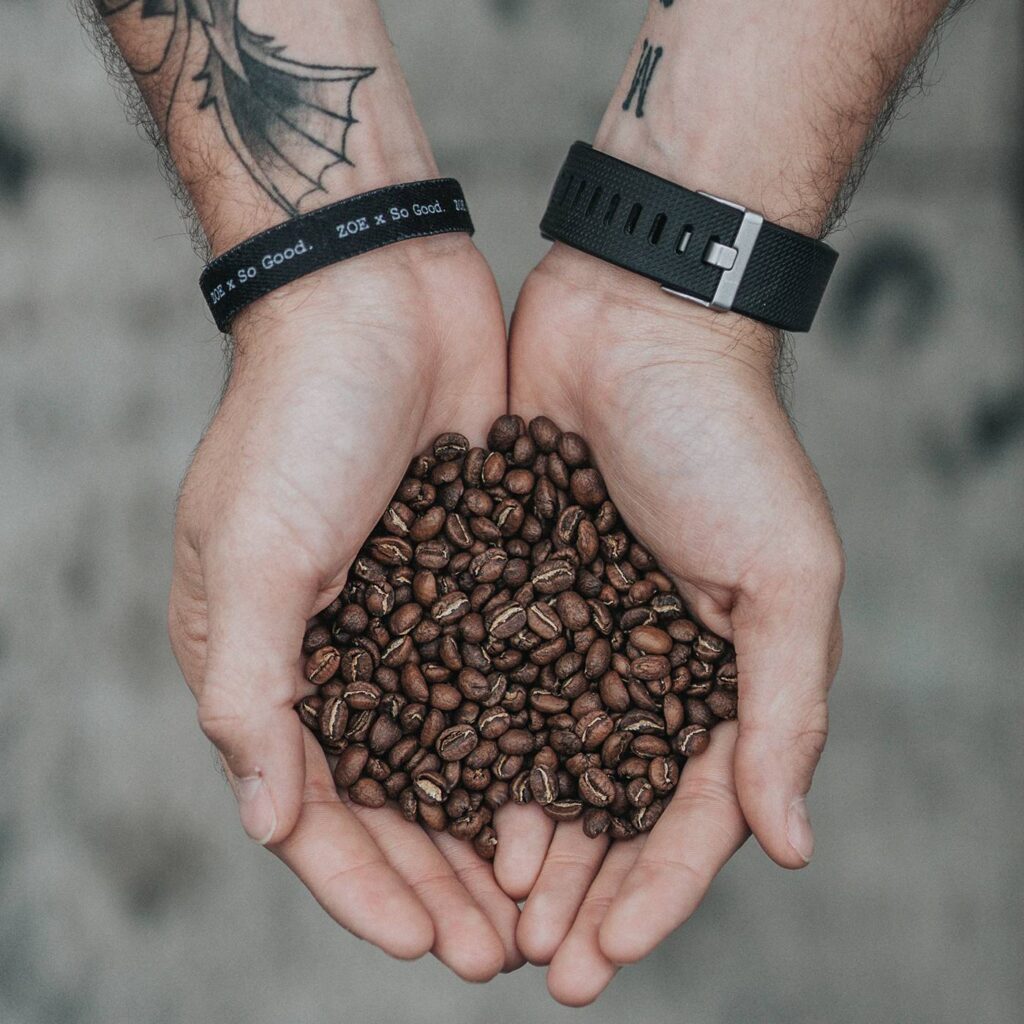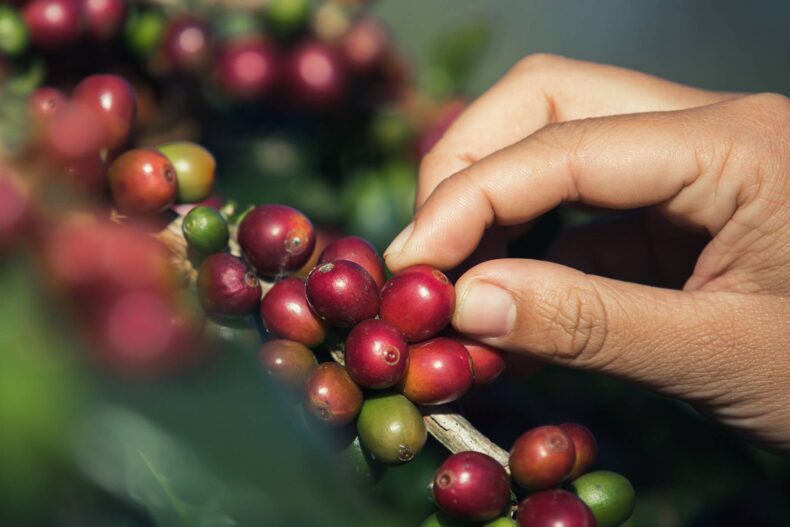
QUALITY FOR CENTURIES
According to the legend, the 9th-century Ethiopian goat herder Kaldi discovered the coffee plant after noticing the energizing effect the plant had on his flock. He was so fascinated by these “magic” beans that he brought them home with him.
LONG STANDING TRADITION
Coffee production in Ethiopia is a longstanding tradition that dates back dozens of centuries. Our coffee comes from the southern Ethiopian highlands, where the environment is perfect for producing amazing coffee, without adding anything to it. High elevations in the southern mountain region with deep soil and lush vegetation make for excellent growing conditions, where each contributing climate factor brings forth the coffee’s quality and eminent taste. Our coffee beans are brought down from the mountains on donkeys, as this is the only way to transport them from the remote coffee areas. The beans are washed or dried before being shipped to Denmark, where we roast it in three different roast profiles.
Coffee from Ethiopia is known for it’s bright fruited and floral flavors. These coffees typically have a higher acidity, light to medium body, and complex flavor notes.
The diversity in the varieties of Ethiopian coffees
For those of you who don’t know, Ethiopia has the most varieties of wild Arabica. This is based on a very simple reason: it is the birthplace of Arabica. The coffee plant has been growing there for hundreds and hundreds of years and consumed by people for as many years as well.
This important fact means that there is a wide range of flavor profiles among Ethiopian coffees. The country has 7 main coffee-producing regions, after which the coffees are named: Harrar, Sidamo, Yirgacheffe, Limu, Lekempt, Jimma, and Guji. Each one has a specific cup profile, thanks to the diverse landscapes and environment that affect the coffee when it grows.
Even within one region, all coffees produced are not the same and differ from farmer to farmer. Thus, each coffee has its own specificities to showcase, its own little magic we can taste only in that specific batch. Every cup of coffee is a surprise in waiting, an explosion of flavors on our tastebuds we can never fully expect.
Put simply, Ethiopia has so many high-quality, diverse coffees with flavors found nowhere else. And that’s what makes them one of the best coffees in the world, in our opinion.
I wake up some mornings and sit and have my coffee and look out at my beautiful garden, and I go, ’Remember how good this is. Because you can lose it.’
Jim Carrey
The coffee as a life style
Therefore, a caffeinated drink is best consumed before exercise. And many athletes do just that. Indeed, there is such a term as “coffee addiction”, they talk about it like about nicotine, but of course it brings much less harm. If coffee is regularly loaded before training, then during the period of refusal of caffeine, a significant decrease in motivation and endurance during training can be observed.

But there are also arguments in favor of drinking coffee after a workout: caffeine accelerates the removal of lactic acid from the body, and it is known to be the cause of muscle pain after intense training.
- Boosts metabolism
- Gives energy
- Makes you more active
- Relieves fatigue
Everyone knows that coffee is an awakening drink. It gives energy, energizes, makes you be more active, what else is needed before the upcoming workout. But here you need to be aware of the effect of coffee on the human body during sports: is it useful or not. Let’s start with the benefits of drinking coffee before training.
Things you didn’t know about coffee
From the above, we can conclude: if you had a hard and exhausting workout, then after it, you can drink a cup of coffee to relieve fatigue and feel a surge of strength. And if an athlete has low blood pressure, then a cup of coffee will allow him to normalize his body parameters and thereby avoid headaches that often occur against the background of body fatigue.
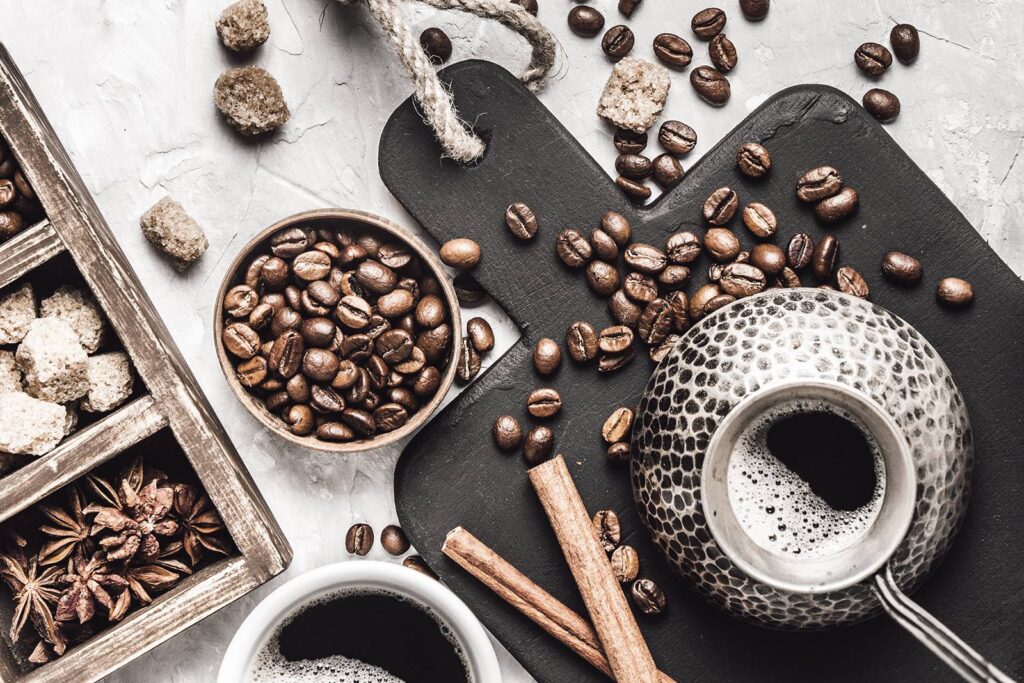
Important to know, that excessive consumption of coffee can lead to side effects. For example: trembling, palpitations and even sleep disorders. If you observe such effects without training, it is better to refrain from coffee.
Drinking coffee during sports
We hope that this knowledge will help you find the answer to questions about drinking coffee during sports. At a minimum, if you have good health and no illnesses, then you can enjoy your favorite drink both before and after training.
The finally conclusion is that the coffee has a dehydrating effect on the body, so it is water that is the best option for saturating water after a workout. Coffee boosts your metabolic rate so you burn more calories, and this can help your body burn fat rather than glucose for energy. Coffee also regulates blood sugar levels and helps improve insulin sensitivity.
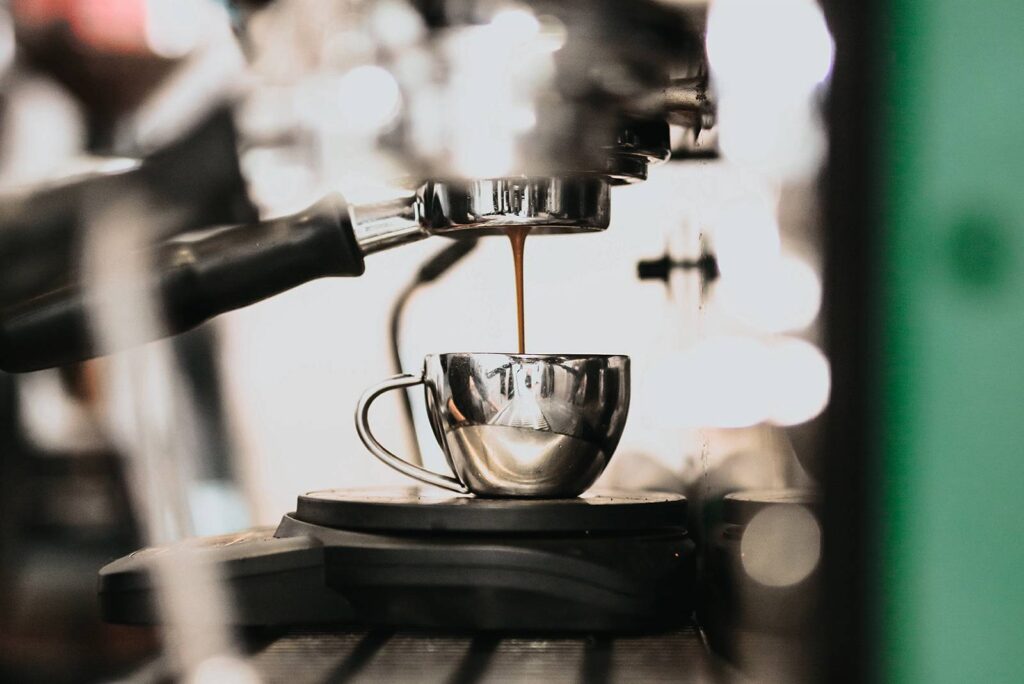
In addition, more recently, physiologists in the course of research have identified new opportunities for coffee drinks. It turns out that with the help of coffee you can develop muscle mass. Taking a small dose of caffeine can increase your workout by up to 44% and can reduce fatigue. The researchers also found that caffeine is extremely effective in the fight against muscle pain. Moreover, this alkaloid inhibits the possible development of heart disease and cancerous tumors.
